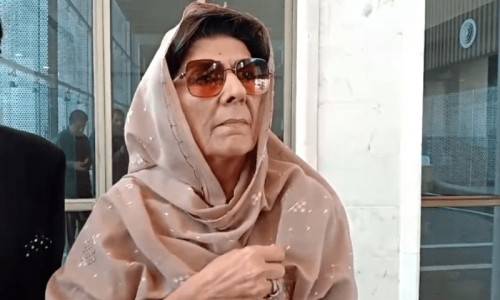HYDERABAD, Sept 17: Ian Simpson, a leading snakebite expert, on Monday urged Pakistani doctors to give up over-reliance on western medical textbooks as far as snakebite treatment and guidelines were concerned and introduce the protocols that were Sindh and Pakistan specific.
Mr Simpson, who is also adviser to the Pakistan Medical Research Council (PMRC) told a group of journalists at the Liaquat University of Medical and Health Sciences (LUMHS), that the WHO’s data claiming 20,000 per year snakebite deaths in Pakistan was overestimated and said the figure was not more than 3,000 to 4,000.
“WHO’s figures are compiled by people sitting miles away in their cosy rooms. They need to come here, study the conditions and then suggest what they want,” he said.
As compared to Pakistan, WHO claims that in India 50,000 people die due to snakebite, he said and believed that anti-snake venom (ASV) imported from India was not so effective. Pakistan produced only 30 per cent of ASV and imported the rest, he said.
Each imported vial cost Rs1,800 to Rs2,000, which was also hit by economic constraints, he said adding that the issue of snakebite in Pakistan was 150 years old and there were little changes in its treatment over time.
He said that he was working on a two-year programme to train doctors in how to treat a snakebite victim and carry out tests on the locally produced Indian ASV to know their efficacy and effectiveness.
Under the programme, a study would also be conducted to know species of snakes like cobra, krait, viper and lundi - most common in Tharparkar - in NWFP, Balochistan and Sindh to identify the availability of anti-venom.
He said that no specific data were available on specific snakes. “We need to know symptoms a patient shows after having been bitten by snake in different cases,” he said.
He said that local ASV producing facilities needed to be set up to avoid dependence on imported ASV. It was due to the study of western medical textbooks that doctors here were in the habit of giving overdoses of ASV to snakebite victims to lessen its ineffectiveness, which was absolutely unnecessary.
It could be avoided when locally produced ASV was in rich supply and as quickly as possible. “We must develop Pakistan specific protocols for snakebite victims in the country’s own context,” Mr Simpson stressed.
He said that in most of the cases snakebite victims were put on ventilators. The cobra’s bite badly affects a victims breathing and he needed artificial respiration but since ventilators which were not available in every health facility most of these victims die unnecessarily, he said.
To overcome this deficiency, a rubber tube attached with ambo bag was to be inserted through throat or nostrils. The bag was squeezed frequently to push air into the victim’s lungs and help him breath until he was put on ventilators after several hours of travelling, he said.
He said that in cases of lundi’s bite, which was very common in Pakistan, doctors were just required to have a new, dry and clean vessel, which cost Rs2-1/2, for blood sampling to enable doctors to ascertain presence of venom in human body.
Mr Simpson said that doctors would be imparted training in different districts and urged international community to support government in this regard after making on-ground inquiries.
A major study of snakes brought to hospitals would be undertaken to establish types of species causing serious snakebites, he said.













































